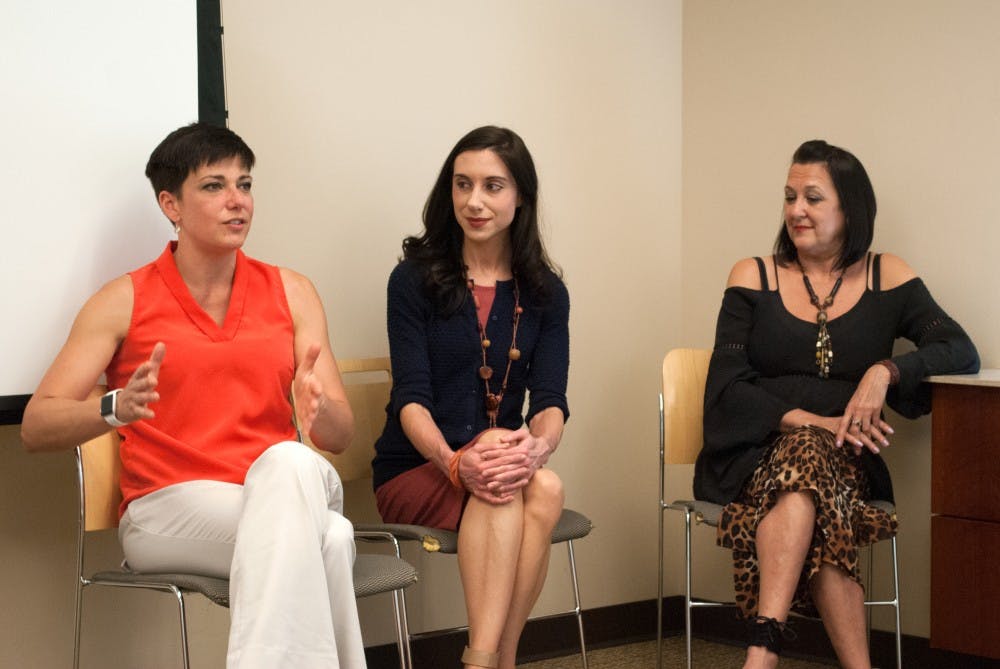When Aimee Fant knew she was going to lead a classroom of K-12 children at the Youth Opportunity Center, she was terrified.
But after five minutes, the current Muncie Action Plan coordinator knew she had found her place in the community. And the YOC wouldn’t exist without the community, she said.
“Had I not had that experience, I wouldn’t be here now,” Fant said.
At a panel hosted Monday by the Student Government Association, Fant, along with two other community leaders, encouraged students to overcome their fears and excuses preventing them from being a part of the community.
Some Ball State students will never venture to downtown Muncie, which is about the same distance from campus as Scheumann Stadium.
So why do students avoid it?
Fant thinks some students invest too heavily in crime stories in Muncie news media. So, she and other community leaders are writing their own narratives.
“I’m trying really hard, and I know Melanie is trying really hard to tell the good stories,” Fant said. “I want people to see Muncie the way I see Muncie. I want people to see the beauty, and I want people to share it.”
Melanie Howe owns Addison Avenue Marketing, a local business named after her daughter, whom she raised here in Muncie.
“I’ve always been passionate [about Muncie] because I grew up here,” Howe said.
Howe calls Muncie a “treasure hunt,” as its residents can leave their marks on the community if they look for their niche.
“If you just put a little bit of effort into it, you can find something,” Howe said. "If you want to sit on your butt and do nothing and want the community to come to you, Muncie is not for you."
This isn’t to say Muncie is a perfect society — the panelists did not ignore this fact — but instead of complaining, the three agreed it is better to work toward change.
Fant acknowledged this by citing the current “health crisis” in Delaware County. It’s ranked 87 out of 92 counties in overall health.
To help combat this, Fant said Muncie needs graduates of Ball State to give back to the community.
Cheryl Crowder, the event director for the DWNTWN project, said professors who engage students in immersive learning projects that benefit the community provide an enormous help to the city.
Jonathan Isbill, a junior dietetics major, also thinks these classes benefit more than just students. Isbill said there is an “untapped potential” to come from immersive learning.
Ball State could also improve on introducing new students to the city in which they live, he said.
“You don’t expect to take ownership within the city,” Isbill said.
Right now, the driving force connecting Ball State to Muncie is the Office of Community Engagement, a relatively new office which works with various organizations across the city, including the DWNTWN project.
Despite its downtown area,
“I’m a big fan of the people here. I feel like there’s an honest goodness to them,” Crowder said. “Stay here if you can find an opportunity. It’s an awesome place to live.”





